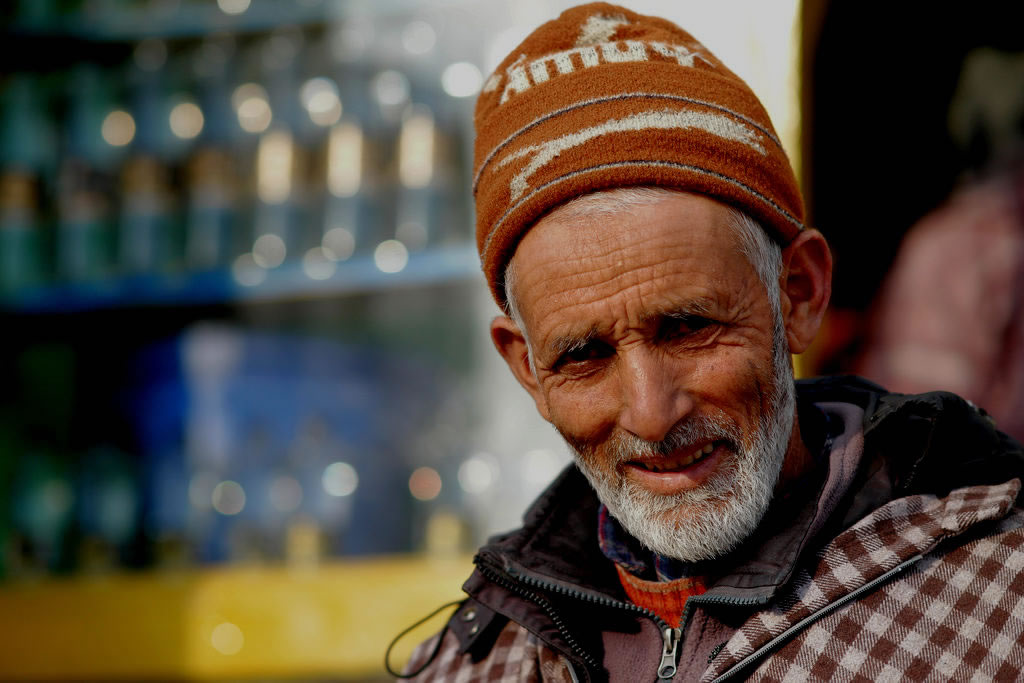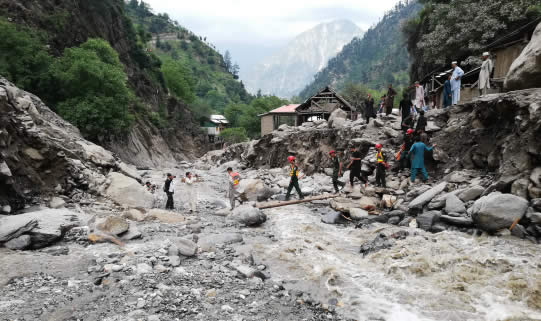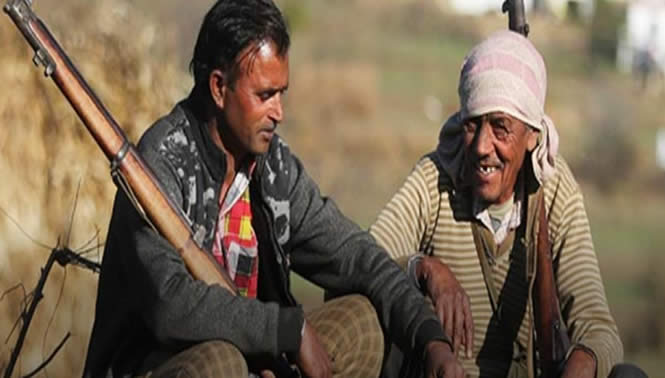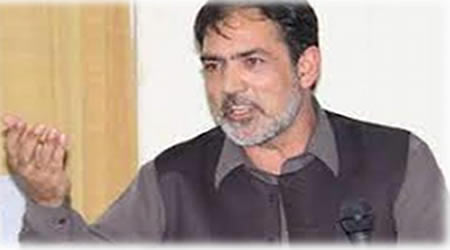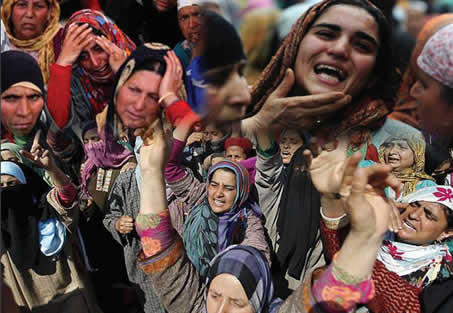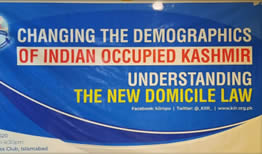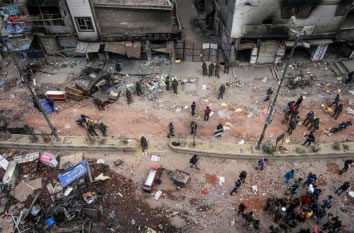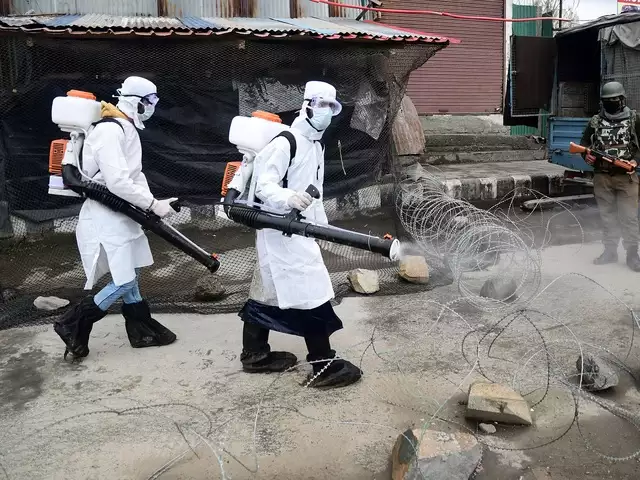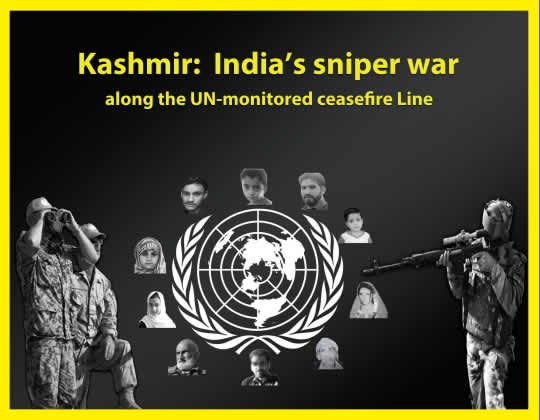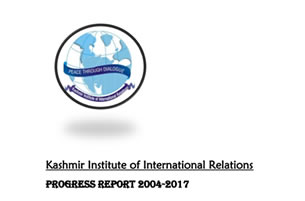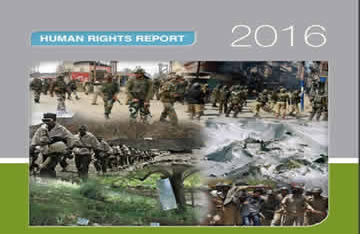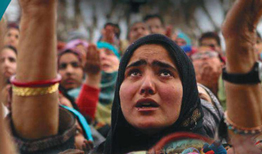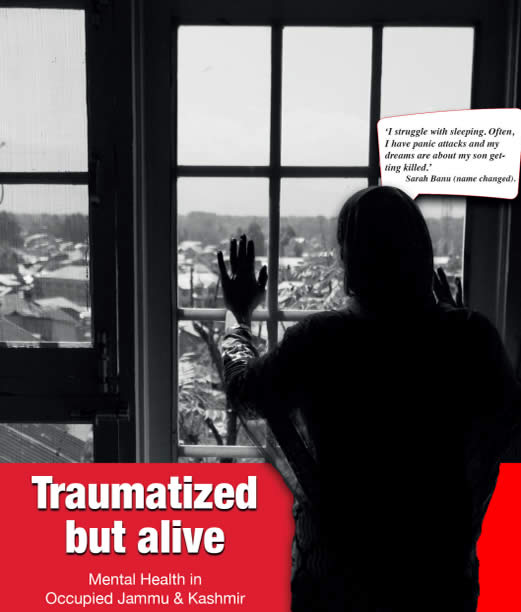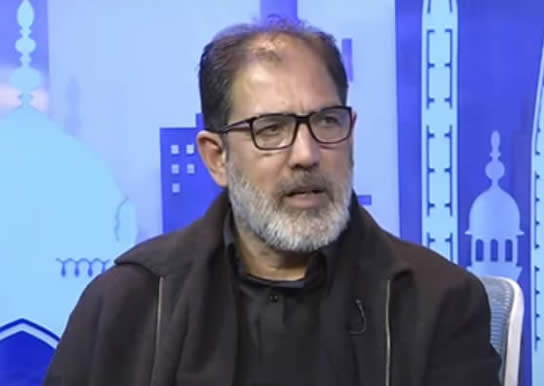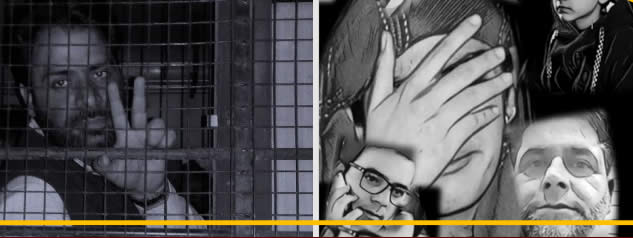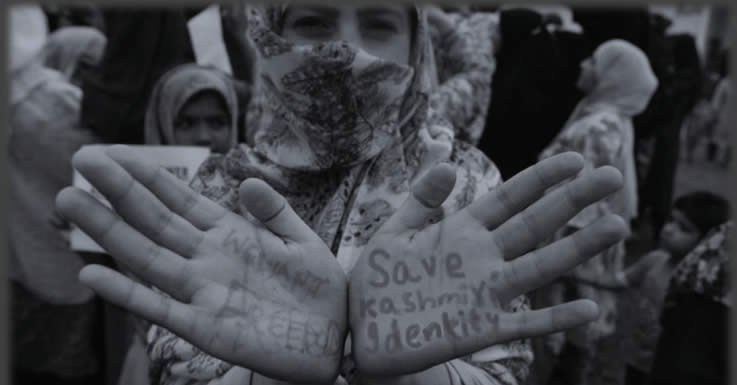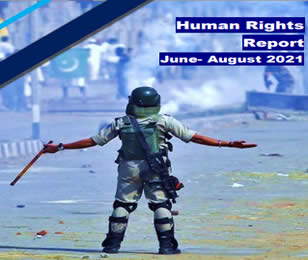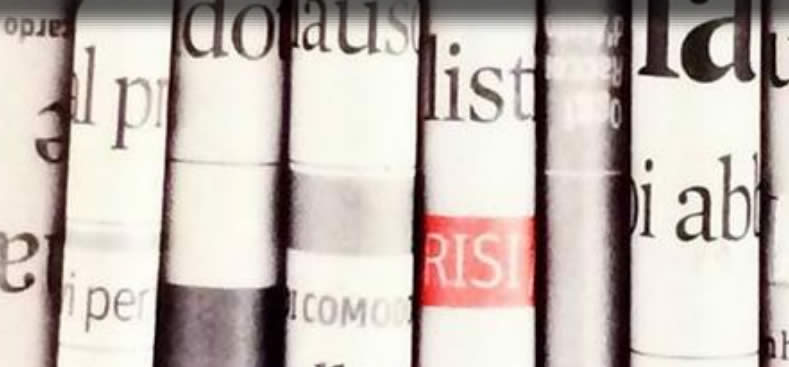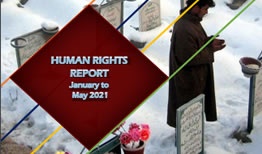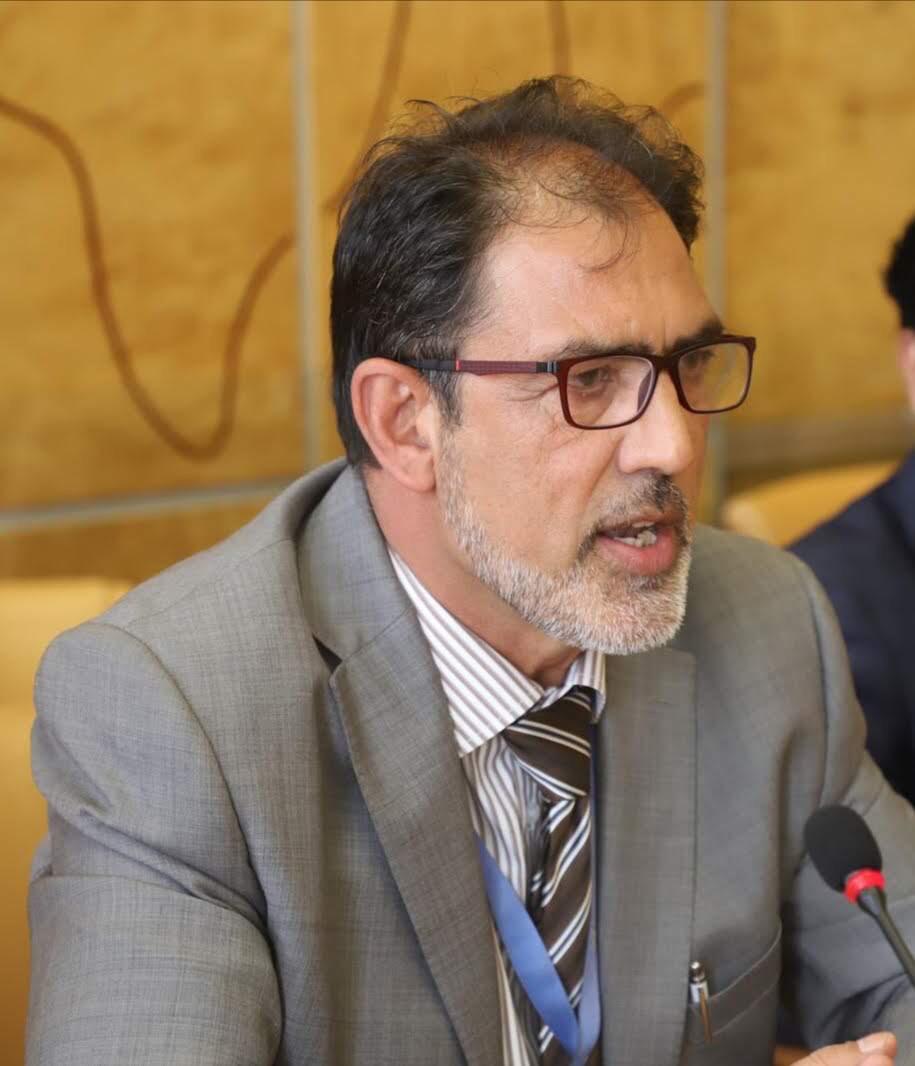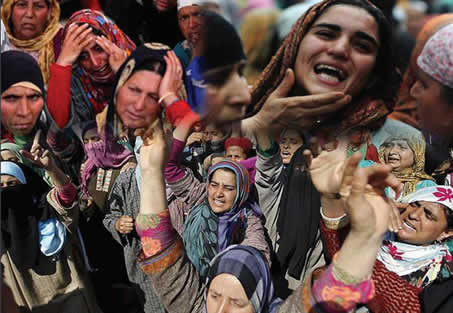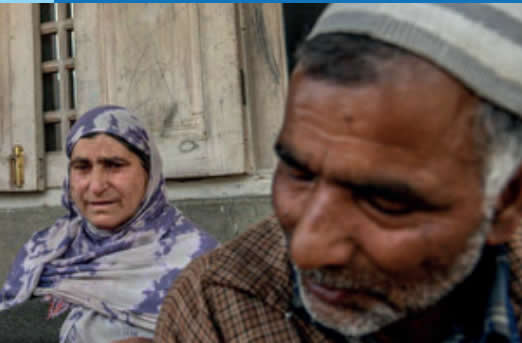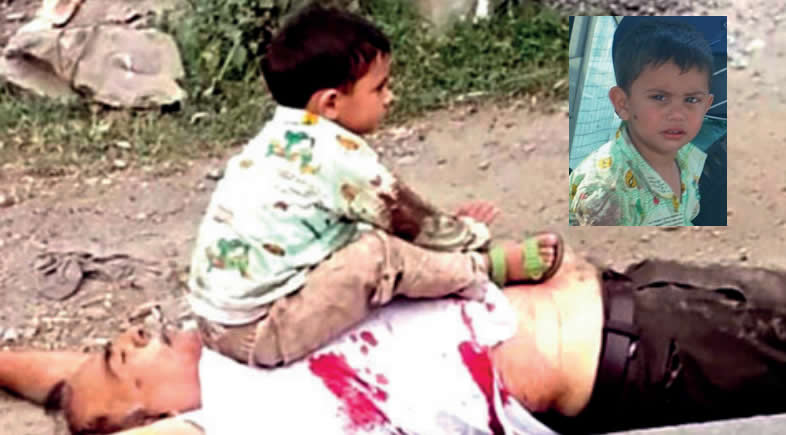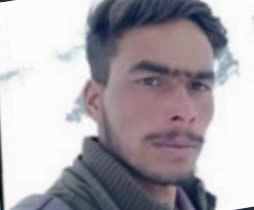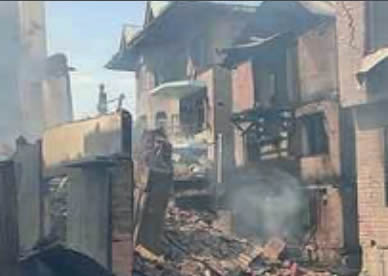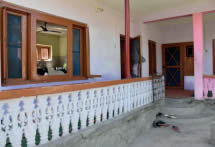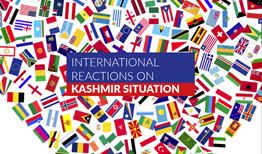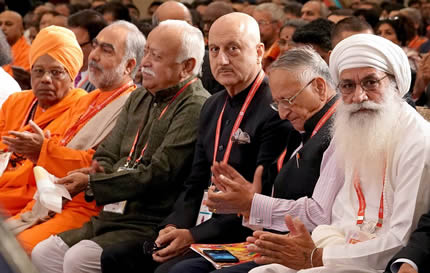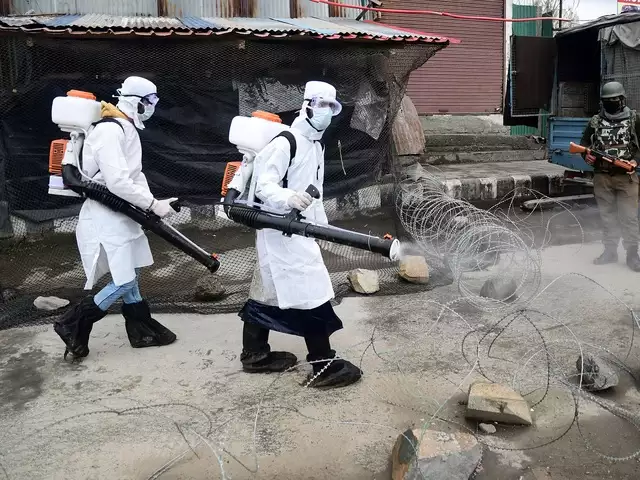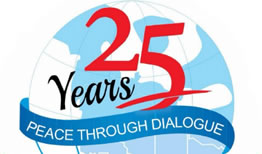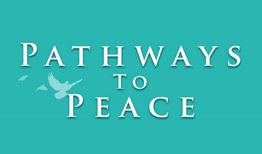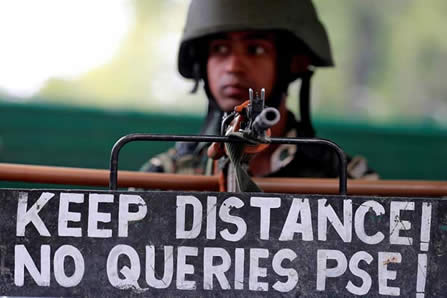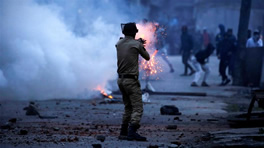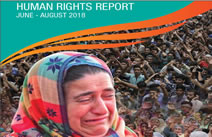THE COMPLEX DYNAMICS IN KASHMIR
Human Rights Report
THE COMPLEX DYNAMICS IN KASHMIR:
A STRUGGLE FOR RIGHTS, REPRESSION, AND INTERNATIONAL COMPLICITY
INTRODUCTION
The region of Kashmir has long been plagued by a complex and multifaceted struggle, with Kashmiris fighting for their rights and freedoms in the face of India’s intensive militarized occupation and repression. This report explores the various dimensions of the Kashmir conflict, shedding light on the absence of representative governance, restrictions on international access, curtailment of basic freedoms, the overtly fascist nature of the Indian state, complicity of powerful states, and the role of India’s G20 presidency.
ESCALATING STATE-SPONSORED VIOLENCE IN IOK
During the period under review, the Indian forces operating in the Indian illegally occupied Jammu and Kashmir (IIOJK) have inflicted significant human suffering and destruction. The documented statistics reveal a disturbing reality, with a total of 61 killings reported. Furthermore, the number of arrests has reached 3,215, indicating a widespread clampdown on civilians.
The violence has not spared the vulnerable population, as 77 individuals have been reported injured due to the actions of the Indian forces. 53 cordon and search operations (CASO) have been carried out, contributing to the atmosphere of fear and uncertainty in the region. The impact of the conflict extends beyond loss of life and physical harm. Property damage has been documented in 61 cases, further destabilizing the Kashmiris. The authorities’ response has included the snapping of internet services in 37 instances, depriving the population of vital communication and access to information.
Tragically, more than6 women have left widowed and 22 children orphaned, highlighting the profound impact on families and the societal fabric of the region. These statistics serve as a stark reminder of the ongoing human rights abuses and the toll exacted by the Indian forces in IIOJK. The international community must continue to closely monitor the situation and work towards a peaceful resolution that upholds the fundamental rights and dignity of the people of Kashmir.
On July 18, 2020, three innocent laborers, Imtiyaz Ahmed, Abrar Ahmed, and Mohammed Ibrar, were tragically killed in Amshipora, Shopian. Initially labeled as Pakistani terrorists by Indian forces, their deaths were used to claim the elimination of a terror threat. However, it was later revealed that the victims were actually cousins from Rajouri district who worked as laborers. Captain Bhupinder Singh staged the encounter for personal gain, and later sentenced to life imprisonment for orchestrating a fake encounter in the Shopian. This incident underscores the gravity of fake encounters and the imperative for accountability and justice in such cases.
The months from January to May have also witnessed a surge in arrests, with over 3,000 civilians, including prominent figures, such as Hurriyat leader Bilal Ahmed Siddiqui, political activists, youth, students, and journalist Irfan Meraj, have been detained by Indian Army, paramilitary forces, and investigation agencies. Many of these individuals have been subjected to the oppressive provisions of laws like the Unlawful Activities (Prevention) Act and Public Safety Act, further curbing their rights and freedoms.

INTENSIVE MILITARIZED OCCUPATION AND REPRESSION:
The Indian state’s presence in Indian-occupied Jammu & Kashmir is characterized by an intensive militarized occupation, with a staggering deployment of 1,000,000 troops in IIoJK. The deployment of a significant number of military personnel has contributed to a climate of fear and repression. This militarization has resulted in human rights violations, including extrajudicial killings, enforced disappearances, and arbitrary detentions.
LACK OF REPRESENTATIVE GOVERNANCE:
Kashmir suffers from a lack of representative governance, which undermines democratic processes and institutions. The absence of elected representatives acting on behalf of the people perpetuates a sense of alienation and fuels discontent within the Kashmiris. This governance deficit hampers the resolution of the Kashmir conflict and the addressing of legitimate grievances.
RESTRICTIONS ON INTERNATIONAL ACCESS:
The non-existent international access to Kashmir poses challenges for the international community in comprehending and engaging with the Kashmir issue. Diplomatic missions, humanitarian organizations, and independent observers face obstacles in assessing the ground realities and advocating for human rights. This lack of international access exacerbates the isolation of the Kashmiri people.
ABSENCE OF BASIC FREEDOMS:
In IIoJK, the absence of basic freedoms such as free speech, free assembly, and access to justice is a distressing reality. Restrictions on free speech stifle the expression of diverse opinions and perspectives, inhibiting the free exchange of ideas. The denial of the right to assemble freely and peacefully prevents the Kashmiri people from engaging in collective action to address their grievances. Moreover, the absence of a fair and impartial justice system raises concerns about human rights violations and the lack of accountability for perpetrators.
OVERT FASCISM AND WAR ON CIVIL SOCIETY AND DISSENT:
The Indian state’s approach towards Kashmir has been described as overtly fascist. This suggests an authoritarian regime that suppresses civil society and dissent. Kashmiris expressing dissenting views or engaging in civil society activities face targeted repression, which further exacerbates the climate of fear and stifles the democratic aspirations of the population. The crackdown on civil liberties and the stifling of dissent undermine the prospects for a peaceful resolution of the Kashmir conflict.
COMPLICITY OF POWERFUL STATES:
Instead of defending the rights of Kashmiris, powerful states have abetted India in its actions in the region. By failing to address the plight of the Kashmiri people, powerful states have undermined the principles of justice, human rights, and self-determination.
INDIA’S G20 PRESIDENCY AS PART OF THE PROCESS:
The role of India as the G20 president raises concerns about the alignment of powerful states with India’s war crimes in IIoJK. By assuming the presidency of the G20 summit, India may gain a degree of legitimacy and influence on the international stage. However, it also draws attention to the potential contradiction between India’s position as a global leader and its perpetration of war crimes in IIoJK. This raises ethical considerations for other G20 member states who must navigate the delicate balance between economic cooperation and the promotion of human rights.
The involvement of powerful states in abetting India’s actions in Kashmir undermines the principles of justice, human rights, and self-determination that are the bedrock of international norms and values. It highlights the challenges faced by the international community in addressing conflicts where geopolitical interests often take precedence over human rights considerations.
The complicity of powerful states in supporting India’s policies not only prolongs the suffering of Kashmiris but also erodes faith in the effectiveness of the international system in upholding fundamental rights and freedoms. It underscores the need for a comprehensive and impartial approach to conflict resolution, one that prioritizes the well-being and self-determination of the affected population over strategic interests.
LAND GRABBING AND SHIFTING LANDSCAPES:
The data reveals a noticeable increase in the number of non-residents purchasing land in Jammu and Kashmir over the period of 2020 to 2022. In 2020, only one person acquired land, while the numbers surged to 57 in 2021 and further rose to 127 in 2022. This trend suggests a growing interest from outside individuals in owning land in the region. The Union Territory has witnessed a significant influx of Indian and multinational companies making investments in Jammu and Kashmir. According to the data, a total of 1,559 companies, including multinational corporations, have invested in the UT. The figures indicate a substantial increase in investments from 310 entities in the 2020-2021 financial year to 1,074 entities in 2022-2023. The rise in land purchases by non-residents raises questions about the impact on local demographics, cultural heritage, and socio-economic dynamics.
Moreover, approximately 70 hectares of land in Gulmarg and Sonamarg has been officially designated as a ‘strategic area’ by the administration in Jammu and Kashmir. This land allocation aims to cater to the operational and training needs of the armed forces in the region.
UAPA IN INDIAN-OCCUPIED KASHMIR:
Outlined below are a few circumstances that can lead to charges under Unlawful Activities Prevention Act (UAPA) in Indian occupied Kashmir.
• Journalism: In Indian-occupied Kashmir, journalists face charges under anti-terror legislation for simply doing their job, as seen in the case of Aasif Sultan, Fahad Shah and Abdul Fazli who were imprisoned for writing articles on pro-freedom Kashmiri leaders or human rights violation committed by Indian forces in IIoJK.
• Social Media: The government has used anti-terror laws to target social media users, with individuals summoned by the police and subjected to charges like the Unlawful Activities Prevention Act (UAPA) for expressing their opinions online.
• Photojournalism: In 2020, a Kashmiri photojournalist Masrat Zahra was booked under the UAPA for sharing her photographs documenting conflict and the lives of women in the region.
• Raising Slogans: Individuals have been arrested and charged under anti-terror legislation for raising anti-Indian slogans during religious processions and funerals of pro-freedom leaders.
• Playing Cricket: Shockingly, playing a game of cricket in memory of a slain pro-freedom fighter led to the booking of students and a teacher under the UAPA for allegedly “glorifying militancy.”
• Demanding the Remains of the Deceased: Seeking the return of the dead bodies of loved ones, who were victims of fake encounters, has resulted in individuals being slapped with the UAPA.
• False Accusations: Innocent individuals have been wrongfully charged under anti-terror laws, such as in the cases of Faisal Maqbool and Bashir Ahmed Baba.
• Exposing Corruption & Land Grabs: Activists, like Abdul Bari Naik, have faced arrest and UAPA charges for exposing corruption within the government and encroachment on village land by the Indian Army.
• Defending your Home against the Army: Even questioning army raids on their homes has led to arrests under the UAPA, as witnessed in the case of Samia Akhtar, a Kashmiri special police officer.
• Singing Songs About Freedom: Expressing support for freedom through songs has resulted in individuals like Sarjan Barkati facing UAPA charges and prolonged captivity.
• Posing for a Photo: Naseema Bano was booked under the UAPA for a photo posing with her son, who was a freedom fighter killed by the Indian armed forces.
• Cheering for the Pakistani Cricket Team: Celebrating Pakistan’s win against India in a T20 match resulted in individuals being booked under the UAPA.
SIEGE AND SEARCH OPERATIONS:
The protracted and aggressive nature of the siege and search operations in various districts of IOKhighlights the persistent human rights abuses perpetrated by Indian troops. Armed with advanced weaponry, including rocket launchers, these security forces conducted extensive searches in hotels, residential buildings, and other locations. The imposition of sieges, searches, and restrictions on movement not only undermines the basic rights of the affected population but also contributes to a climate of fear and uncertainty.
By sealing off entry and exit points in villages using barbed wire, Indian forces have severely restricted the movement of the affected population. The heightened checkpoints along the Jammu-Pathankot highway have led to increased vehicle inspections and surveillance of all movements.

SEIZURE AND TORCHING OF PRIVATE PROPERTY IN IIOJK:
The seizure and torching of private property in IOKby the State Investigative Agency (SIA) have resulted in severe hardships for the people of Kashmir. Since the revocation of Article 370 in August 2019, the SIA has conducted raids and confiscated over 100 properties, including commercial establishments, residential houses, agricultural land, and even school buildings. These actions are viewed as collective punishment imposed by the Indian government on the people of Kashmir. In 2022, the State Investigative Agency (SIA) in south Kashmir’s Anantnag district seized thirteen properties belonging to Kashmiri civilians.
The destruction of civilian property by the Indian armed forces in IOKhas become a disturbing norm. These acts include burning down homes, coercing families to pour kerosene into their own dwellings, and looting valuable possessions, such as cash and jewelry, during siege and search operations. Shockingly, a staggering total of 110,498 private properties have been destroyed since 1989 due to military operations. Specifically, in 2020, 657 homes and other public properties were destroyed, followed by 130 in 2021, and 196 in 2022, all at the hands of Indian troops

INTRODUCTION
The region of Kashmir has long been plagued by a complex and multifaceted struggle, with Kashmiris fighting for their rights and freedoms in the face of India’s intensive militarized occupation and repression. This report explores the various dimensions of the Kashmir conflict, shedding light on the absence of representative governance, restrictions on international access, curtailment of basic freedoms, the overtly fascist nature of the Indian state, complicity of powerful states, and the role of India’s G20 presidency.
ESCALATING STATE-SPONSORED VIOLENCE IN IOK
During the period under review, the Indian forces operating in the Indian illegally occupied Jammu and Kashmir (IIOJK) have inflicted significant human suffering and destruction. The documented statistics reveal a disturbing reality, with a total of 61 killings reported. Furthermore, the number of arrests has reached 3,215, indicating a widespread clampdown on civilians.
The violence has not spared the vulnerable population, as 77 individuals have been reported injured due to the actions of the Indian forces. 53 cordon and search operations (CASO) have been carried out, contributing to the atmosphere of fear and uncertainty in the region. The impact of the conflict extends beyond loss of life and physical harm. Property damage has been documented in 61 cases, further destabilizing the Kashmiris. The authorities’ response has included the snapping of internet services in 37 instances, depriving the population of vital communication and access to information.
Tragically, more than6 women have left widowed and 22 children orphaned, highlighting the profound impact on families and the societal fabric of the region. These statistics serve as a stark reminder of the ongoing human rights abuses and the toll exacted by the Indian forces in IIOJK. The international community must continue to closely monitor the situation and work towards a peaceful resolution that upholds the fundamental rights and dignity of the people of Kashmir.
On July 18, 2020, three innocent laborers, Imtiyaz Ahmed, Abrar Ahmed, and Mohammed Ibrar, were tragically killed in Amshipora, Shopian. Initially labeled as Pakistani terrorists by Indian forces, their deaths were used to claim the elimination of a terror threat. However, it was later revealed that the victims were actually cousins from Rajouri district who worked as laborers. Captain Bhupinder Singh staged the encounter for personal gain, and later sentenced to life imprisonment for orchestrating a fake encounter in the Shopian. This incident underscores the gravity of fake encounters and the imperative for accountability and justice in such cases.
The months from January to May have also witnessed a surge in arrests, with over 3,000 civilians, including prominent figures, such as Hurriyat leader Bilal Ahmed Siddiqui, political activists, youth, students, and journalist Irfan Meraj, have been detained by Indian Army, paramilitary forces, and investigation agencies. Many of these individuals have been subjected to the oppressive provisions of laws like the Unlawful Activities (Prevention) Act and Public Safety Act, further curbing their rights and freedoms.
Related Reports
